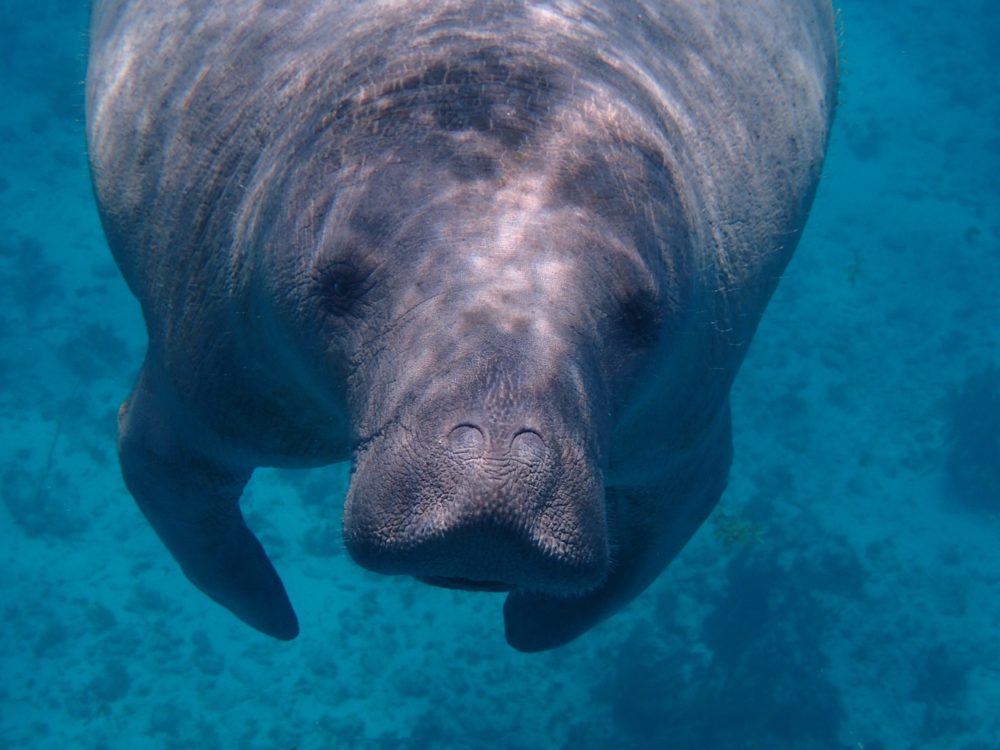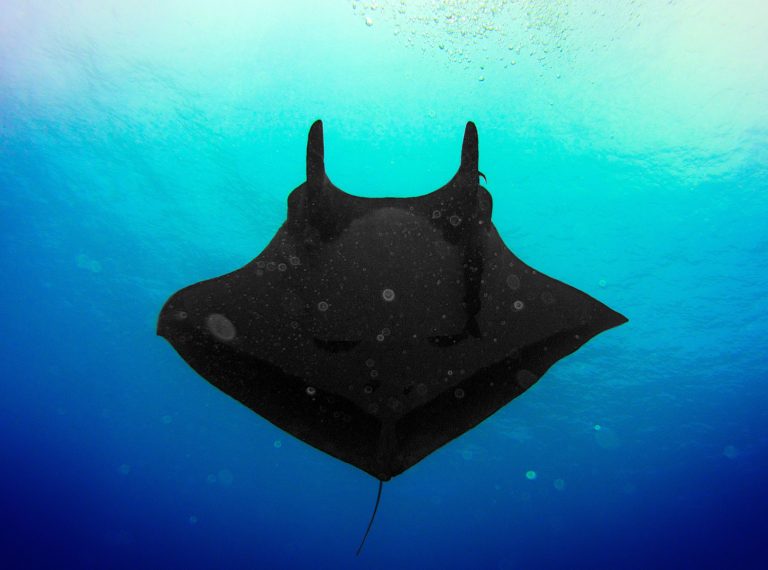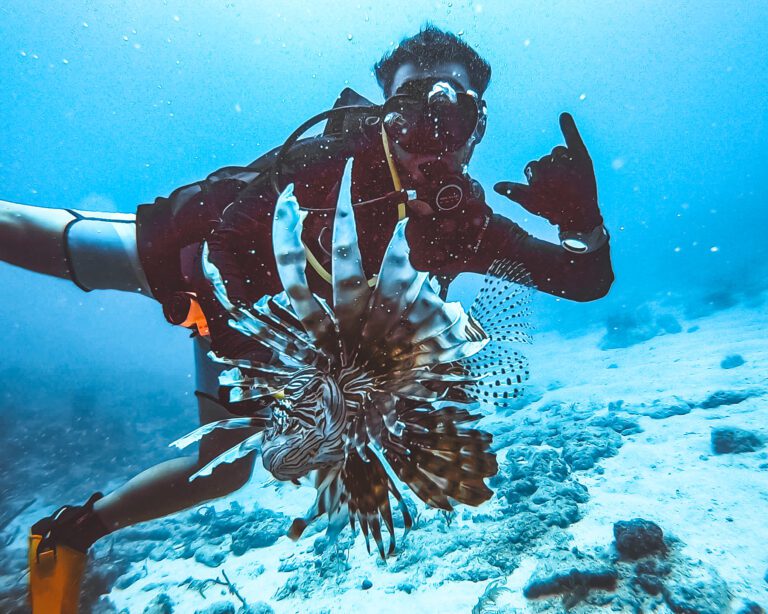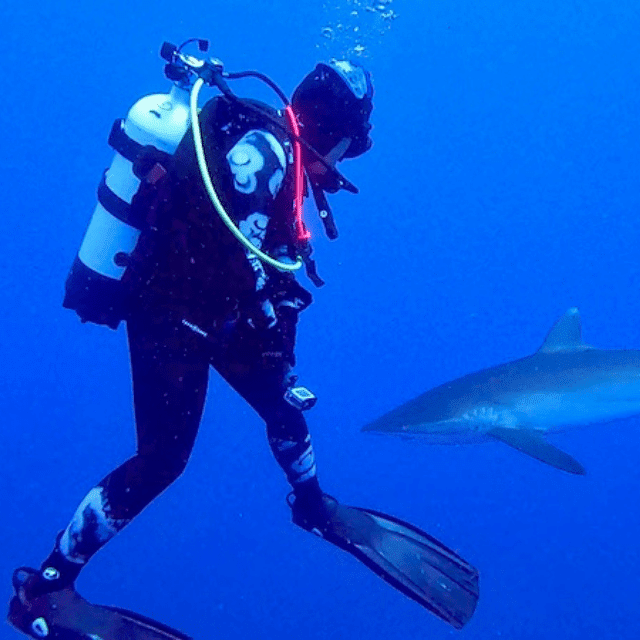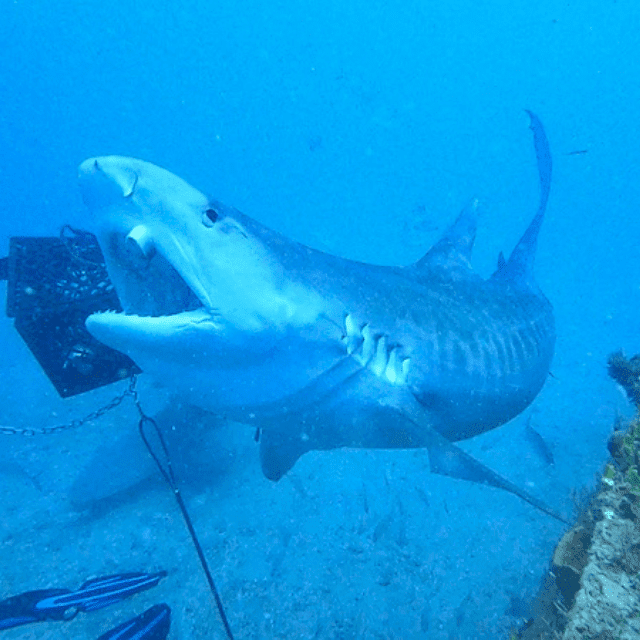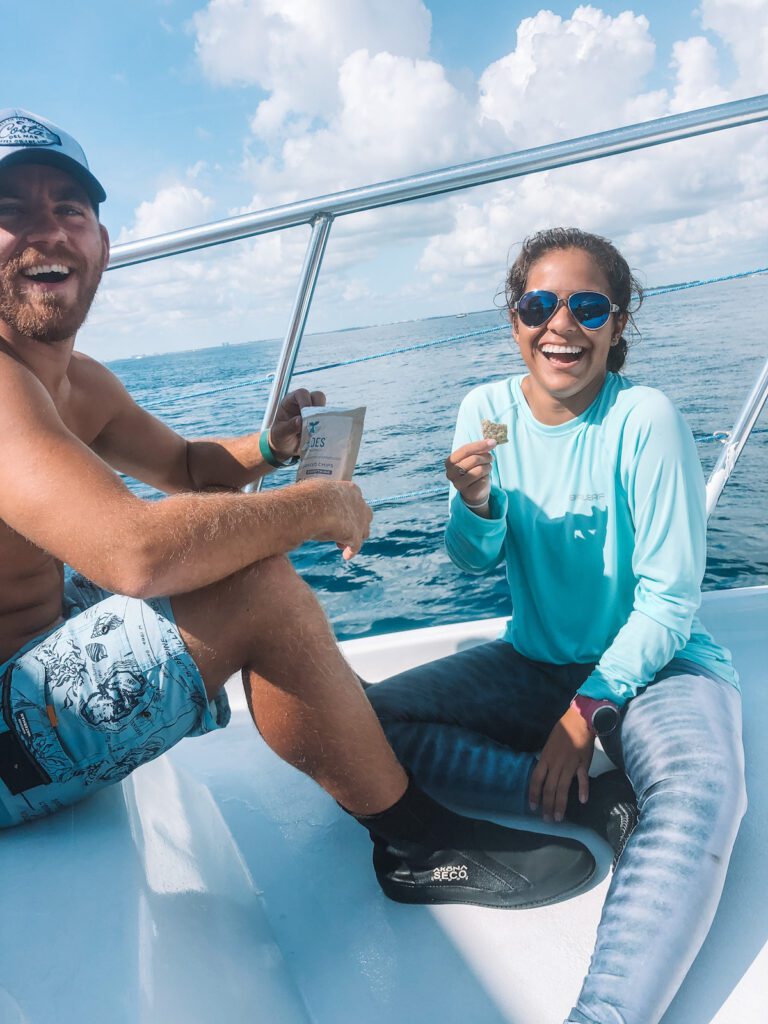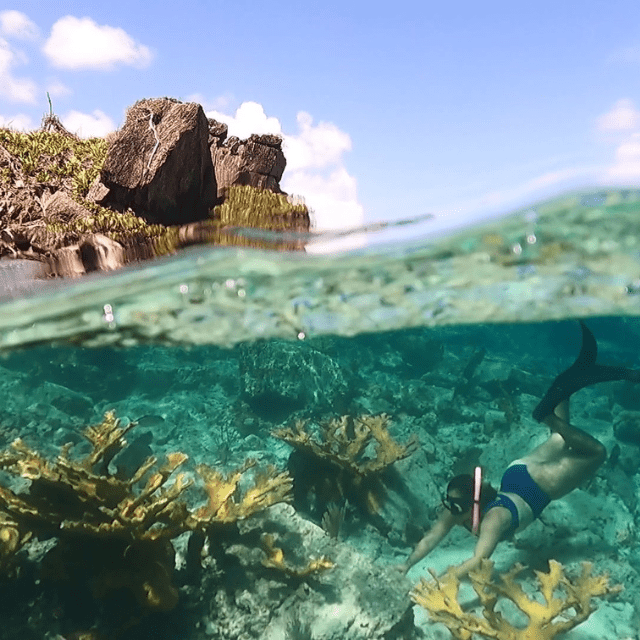13 Tips on How to Respect Marine Life
Immersing yourself in the ocean inevitably brings you up close and personal with marine life. It’s one of the many reasons we LOVE being at the ocean so much, whether it be scuba diving, paddling, or beach-going. However, visiting ocean environments comes with the responsibility of knowing how to respect marine life.
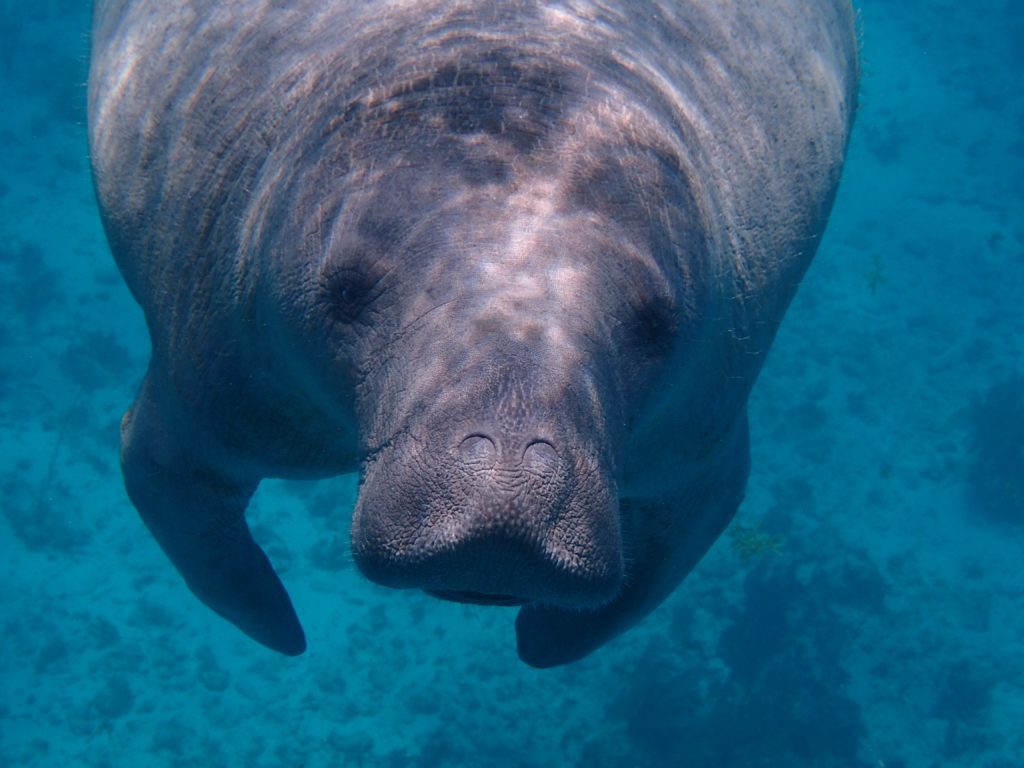
When it comes to marine life, we are visiting THEIR home. One unfortunate encounter could potentially put yourself and thousands of other species at risk. So please, follow our tips on how to respect marine life to ensure safe (and legal) encounters for you AND the wildlife.
1. When entering the water, do the stingray shuffle!
Sounds like a dance move, right? Well, it pretty much is! Stingrays love to hang out in the sandy waters near the beach. So, in order to prevent any accidental missteps, simply shuffle your feet along as you enter the water! The vibrations will allow stingrays to dart away before you step on them, saving the stingray AND your feet.
However, the most important bit of the stingray shuffle is performing it later at the tiki bar! It’ll be an instant hit, guaranteed!
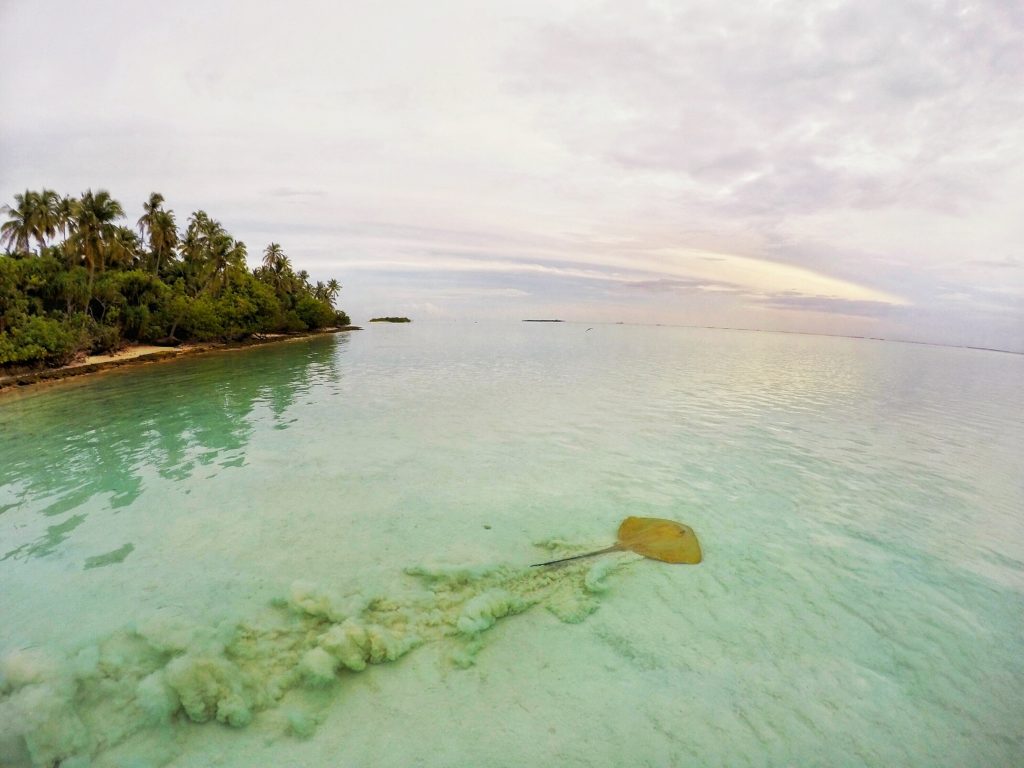
Shuffling your feet along will prevent any accidental missteps!
2. They may LOVE it, but don’t give manatees freshwater
While working on boats in the Florida Keys, I was quick to learn how much manatees LOVED freshwater. During my daily rinsing of the boat, manatees would appear just in time to get a nice refreshing drink dripping off the stern. Turns out, manatees LOVE freshwater (it seems that we’re not entirely sure why, though).
Although, it may make for the perfect Instagram picture to have a manatee at the surface drinking water, DON’T do it! Manatees are federally protected in the USA, making it illegal to give manatees freshwater!
Why is it illegal? It teaches manatees to enter marinas, act differently to humans, and thus, become more vulnerable to injuries such as boat strikes. Every few minutes, manatees need to come to the surface for air, so just be patient and keep a safe distance; your perfect Instagram picture will come around soon enough!
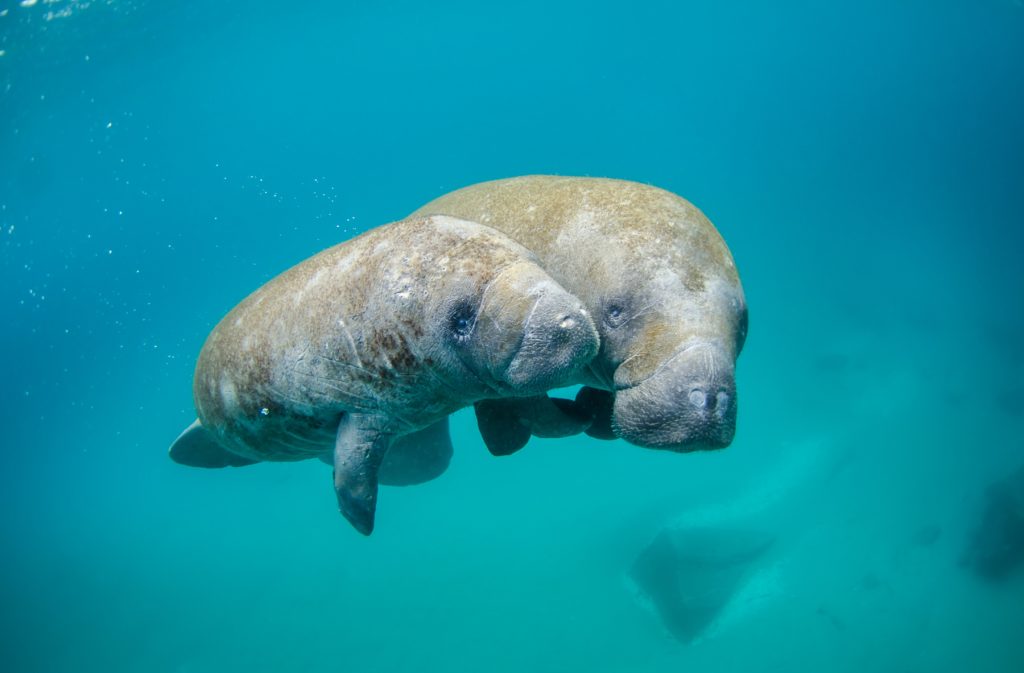
Enjoy the presence of manatees from afar!
3. Beached, sick, or injured animal? Contact the proper authorities!
Every so often, beach-goers will come across a sick, injured, or beached shark, whale, or seal, amongst other animals. What do you do? The best option is to contact the local wildlife authorities. In Florida, the Florida Fish and Wildlife Conservation Commission (FWC) is always on call for these types of incidents simply by texting #FWC or *FWC. (This will be different state to state.)
However, many destinations in the world don’t have authorities to call. If this is the case, what could you do? Obviously, it’s situation and animal dependent, but a good bet is to stay clear and protect yourself. Sick or injured animals become fearful and are more likely to be aggressive.
Hopefully, you or someone nearby would be educated enough on the situation to help in the best possible way (which may be to not help at all, unfortunately). Use your best judgement, be careful, and call the proper authorities when able to!
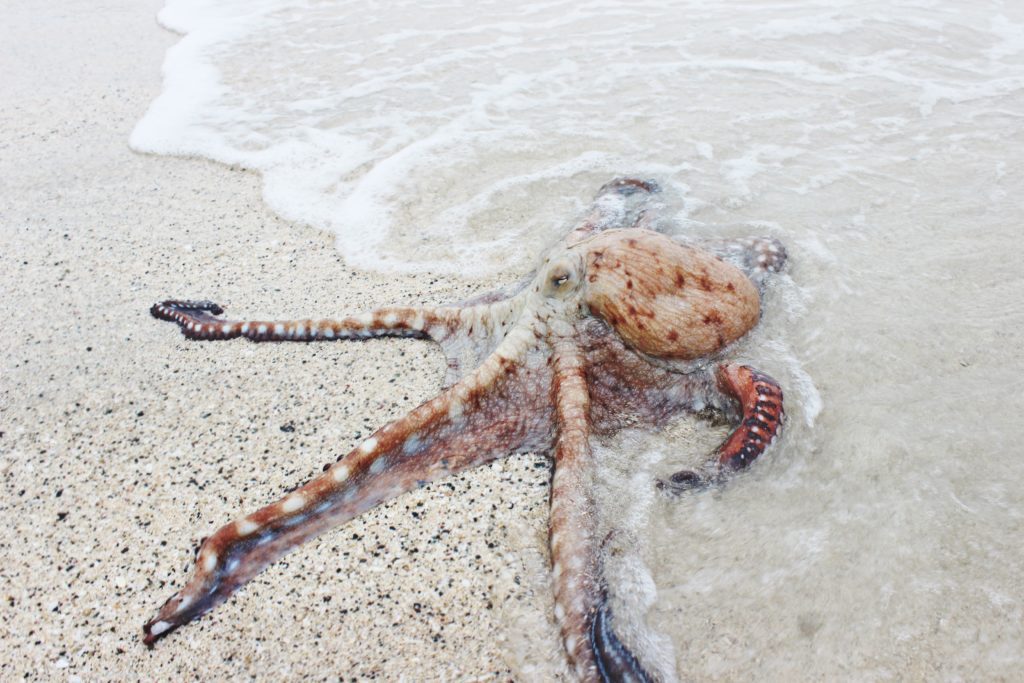
When possible, be sure to call the proper authorities!
4. Yield to marine life, they have the right of way!
I feel like this should go without saying, but marine life have the right-of-way! Lest we forget, we are visiting THEIR territory. Whether it be boating, swimming, diving, or walking the beach. Let animals do their thing and they’ll let you do yours!
Pop the engine to neutral when manatees, sea turtles, dolphins, or injured animals are spotted. Keep your distance and let animals pass by on the beach. While diving, let animals approach YOU on THEIR terms.
Sort of like the time I had a massive lemon shark hit me in the face…. fun times!
5. Let sea turtles, hatchlings, and sea turtle nests do their thing!
From March to October, sea turtles come ashore to lay their eggs. If you happen to stumble upon a sea turtle, hatchling, or a nest, let them do their thing! In the US, handling sea turtles or tampering with their nests is a federal offense as it is detrimental to the animal.
And I mean, who doesn’t want more sea turtles around? They’re pretty friggin cute, if you ask me. To learn more on how to help, check out our do’s and don’ts to helping sea turtles or meet the sea turtles you might find in Florida.
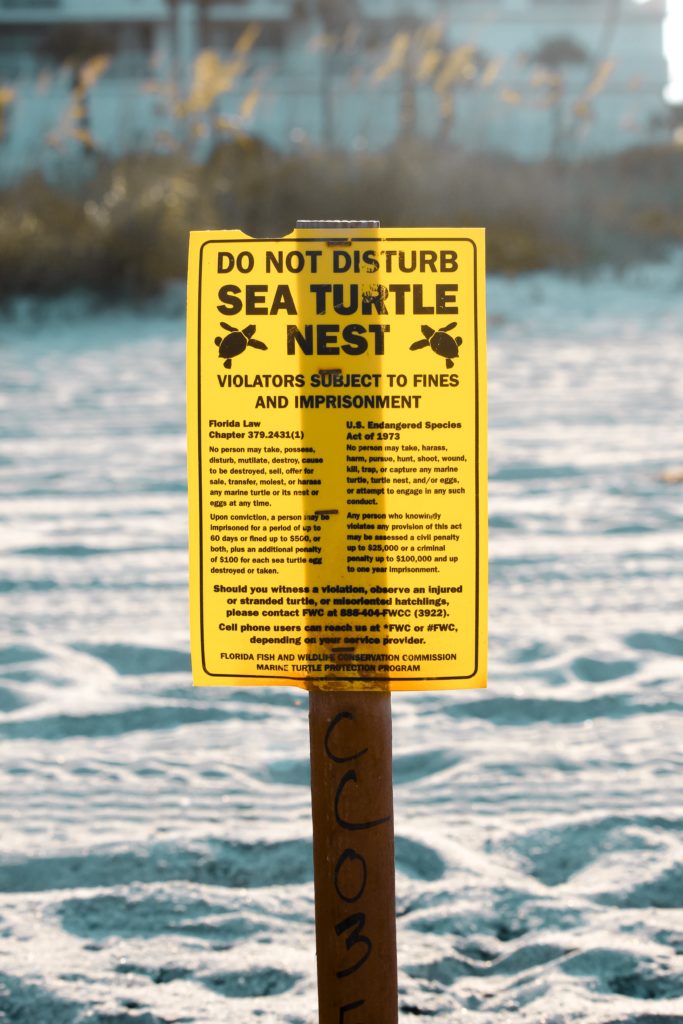
Be careful when you come across a sea turtle nest!
6. Don’t abandon fishing gear, it can wreak havoc!
All too often, fishing line and nets can be easily discarded into the ocean without much thought or care. “Out of sight, out of mind” is a phrase that might come to mind…
However, abandoned fishing gear can raise hell for marine life. It’s made to catch things, right? Well, if discarded in the ocean, it does just that! Fish, sharks, turtles, marine mammals, and coral can all be impacted by abandoned fishing gear in the ocean. So, either recycle your line or take it back home with you!
Not to mention, a study conducted by The Ocean Cleanup found that 46% of the Great Pacific Garbage Patch, a trash accumulation the size of Texas in the Pacific Ocean, was fishing gear. Let’s start reversing this trend!
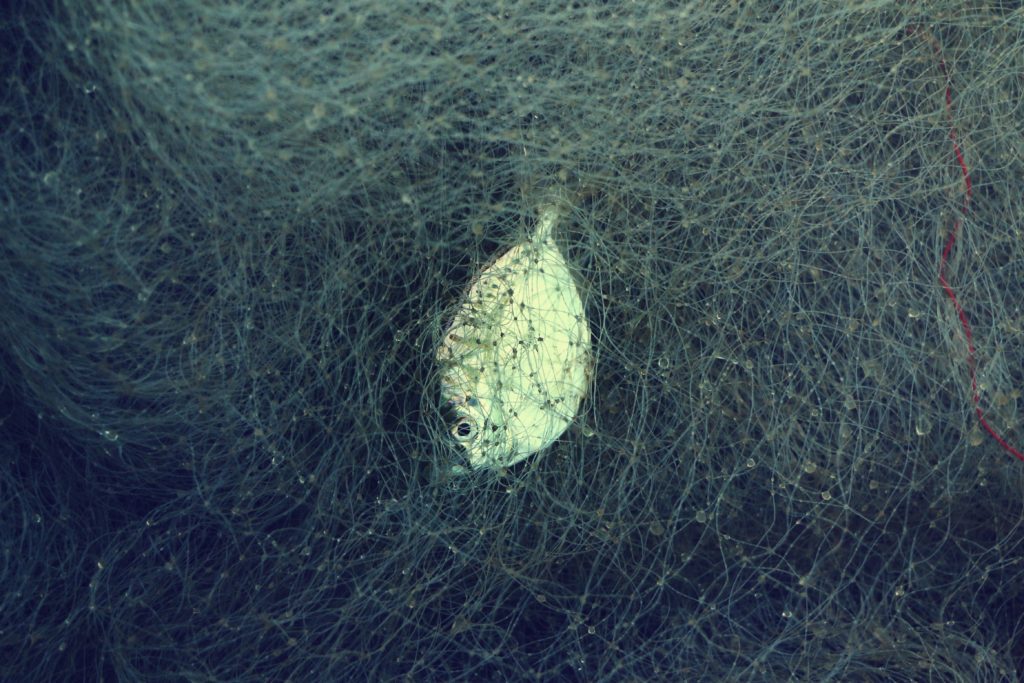
Abandoned fishing gear keeps on fishing with or without you at the helm.
7. Hunt and fish following local, state, and federal regulations (and beyond)
In the United States, many natural resources pulled from the ocean are heavily regulated, and for good reason. It’s not like they’re just throwing darts at the wall, after all (although, it seems like some times they do, who really knows?).
Although, it is important to hunt and fish within these regulations, it is also important to do your research beyond them. Good hunters or anglers should know which animals are sustainable and which are not, regardless of regulations. For example, although legal, many species of grouper are NOT sustainable and hunting them can be harmful for their population.
Respecting marine life requires you to do your research and make sure you follow existing local, state, and federal regulations. Be a responsible hunter! Species and ecosystems are depending on it!
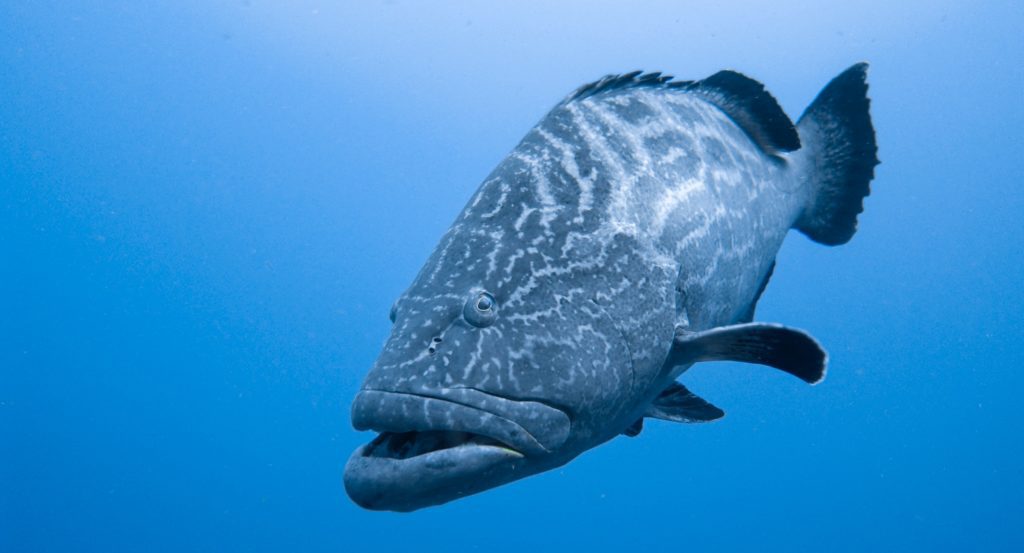
Although tasty and legal to hunt, many species of grouper are not sustainable to hunt or fish.
8. Stay selfish, your snacks are not for sharing.
Every time I eat lunch at the beach, I’m quickly reminded of this when I’m swarmed by pesky ducks and seagulls. Animals are NOT meant to have your snacks. It’s harmful for their digestive systems and changes their behavior towards humans.
Animals accustomed to humans become more aggressive and are put in vulnerable positions that may end up fatal. Even worse, animals that are normally NOT dangerous, quickly become VERY dangerous as they associate humans with food (i.e. black bears, alligators). Unfortunately, these animals usually have to be tracked down and ‘taken care of’.
It may seem like “just one chip” , but it soon spirals into something much more detrimental. Stay selfish, respect marine life by not sharing your snacks.
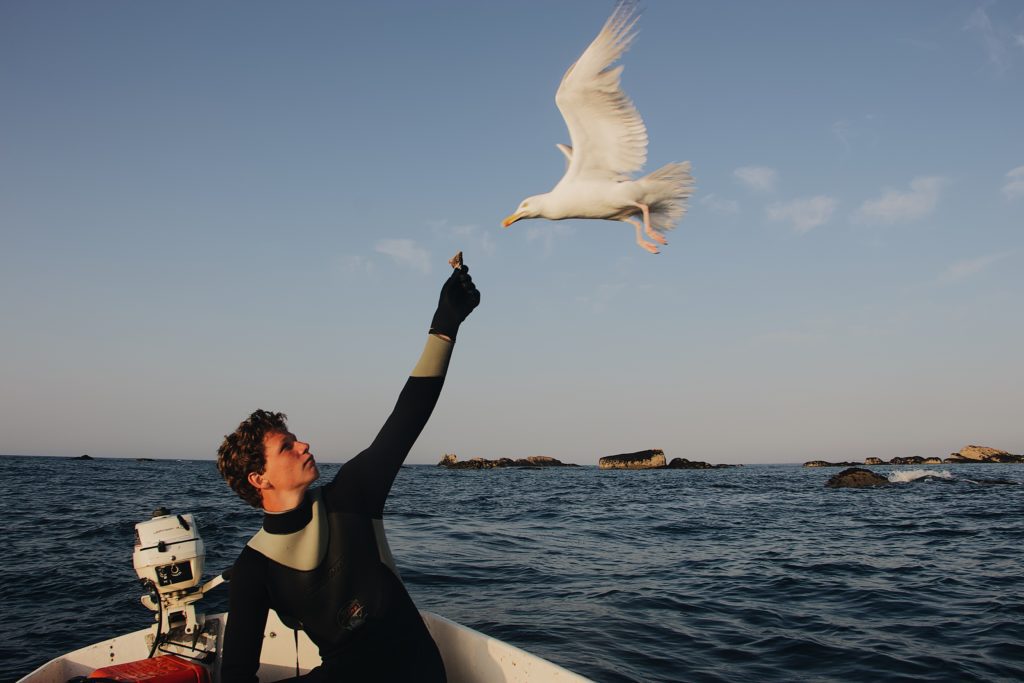
Feeding wildlife leads to altered behavior from the animals. Keep your snacks for you!
9. You can look but you can’t touch (marine life, that is)
Keep your hands to yourself has never rang so true. Not only is touching marine life dangerous for you, it is also dangerous for the marine life! Not to mention the laws you may be breaking (depending on the country, that is).
For example, touching soft or hard corals can remove a protective membrane from the species, making it more vulnerable to disease. That’s not good! Best to steer clear.
Same goes for wild animals. Bacteria, diseases, and viruses can all be transferred from human to animal, or vice versa, simply through touch. Remember, you can look but you can’t touch!
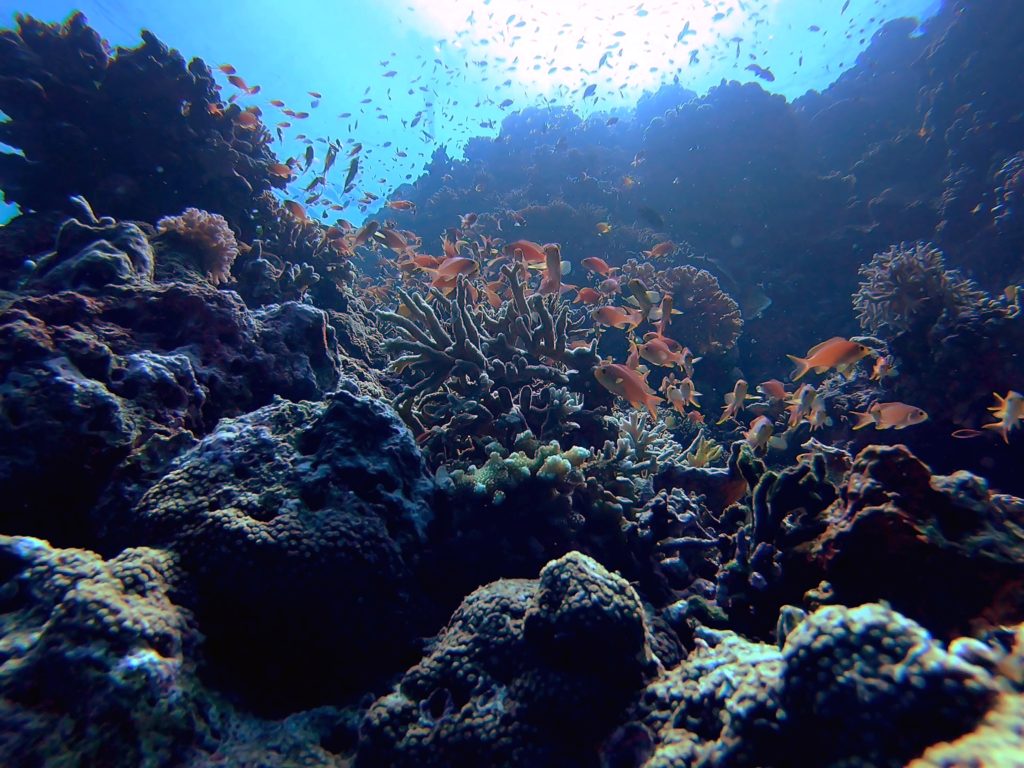
Touching coral reef can be incredibly harmful for you and the coral.
10. Resist the urge! Leave the sea shells where they are.
I’m certainly guilty of doing this in the past, honestly, who isn’t? But resist the urge! Leave sea shells where they are.
Why? Sea shells are a valuable asset to coastal ecosystems. They provide shelter for fish, crabs, and attachment surfaces for important algae or sea grasses.
Sure, they do look pretty on your mantle. But, I’d say, they look more beautiful in the ocean where they belong.
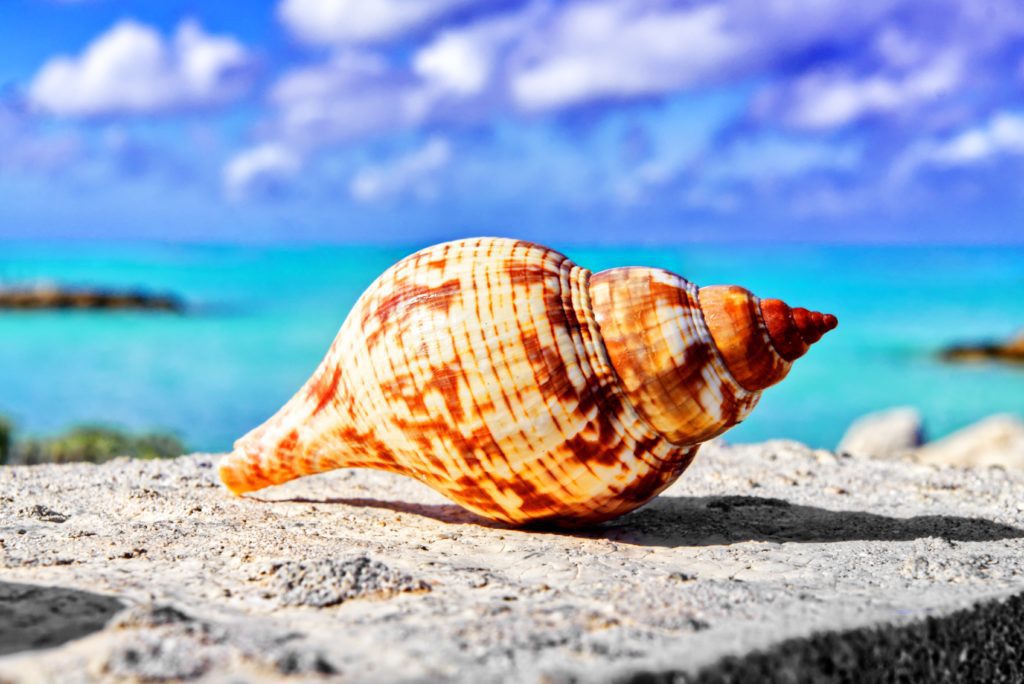
Sea shells are important to ocean ecosystems. Resist the urge and leave them be!
11. Respect marine life by eating sustainable seafood
VERY simply put, sustainable seafood has to deal with how the fish is caught (or farmed) and how that affects the environment at large. It’s a complicated, but important, topic that we will discuss further in a future post! Stay tuned!
Ultimately, if we eat unsustainable seafood, we are supporting fishing practices that may have detrimental impacts on delicate ocean ecosystems. But fear not, much of the seafood we all know and love has great sustainability and can be enjoyed with little or no impact to the environment.
For a quick reference, Seafood Watch has a great tool to find out if the seafood you’re eating is sustainable for your region!
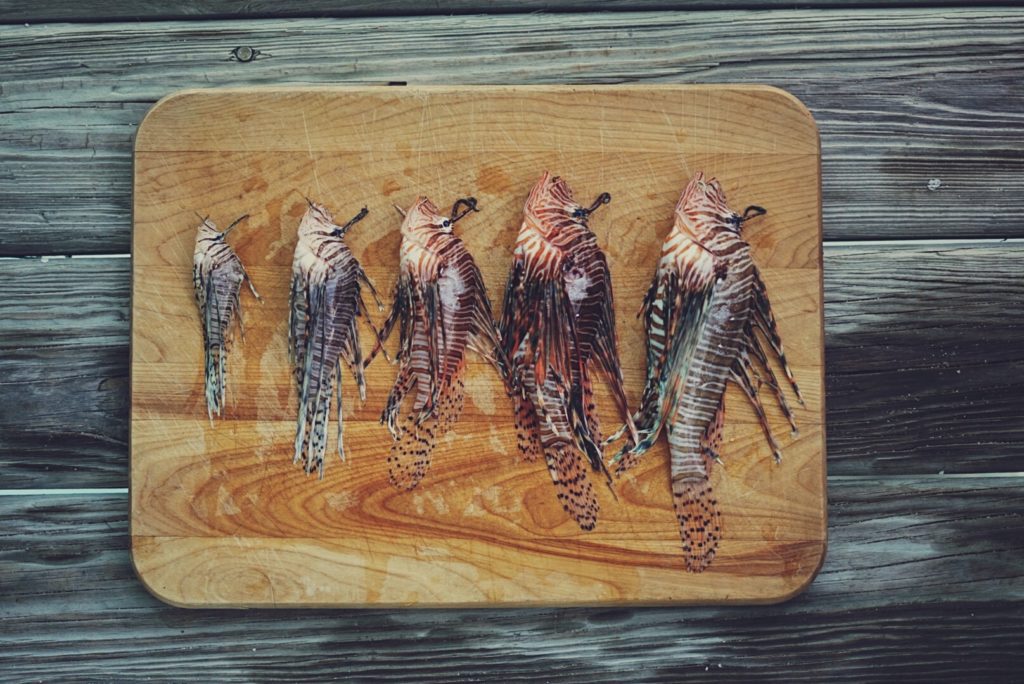
12. Keep your pets on an eco-friendly dog leash!
We love pets and we encourage you bring your good puppies where they’re allowed! However, pets and marine life don’t always mix well. Harmful diseases can be passed from dog to wildlife, and vice versa.
Also, your good doggo may want to play, but the marine life likely will not. Marine life views pets, such as dogs, as predators and will flee the area if seen or smelled.
Bring your good boys and girls to the ocean, but do nature a favor and keep them on an eco-friendly dog leash!

Bring your best friends but be sure to bring the leash.
12. Support businesses who focus on wildlife viewing in the WILD
In recent years a lot of marine attractions have come under fire, and for good reason. Don’t visit and support institutions who hold animals such as whales and dolphins in captivity. Packing whales and dolphins into small swimming pools to perform for humans isn’t exactly natural, if you think about it. If you’re going to view wildlife, such as dolphins, do it on their terms.
Glass bottom boat tours, dolphin cruises, or animal rehab centers are great places to support. These tours allow animals to remain in their natural habitat while you can still view their natural behavior in awe. Rehab centers help restore natural tendencies for animals that may be sick, injured, or have altered behavior due to human influence.
Either way, supporting these types of businesses helps ensure marine animals are treated respectfully and humanely.
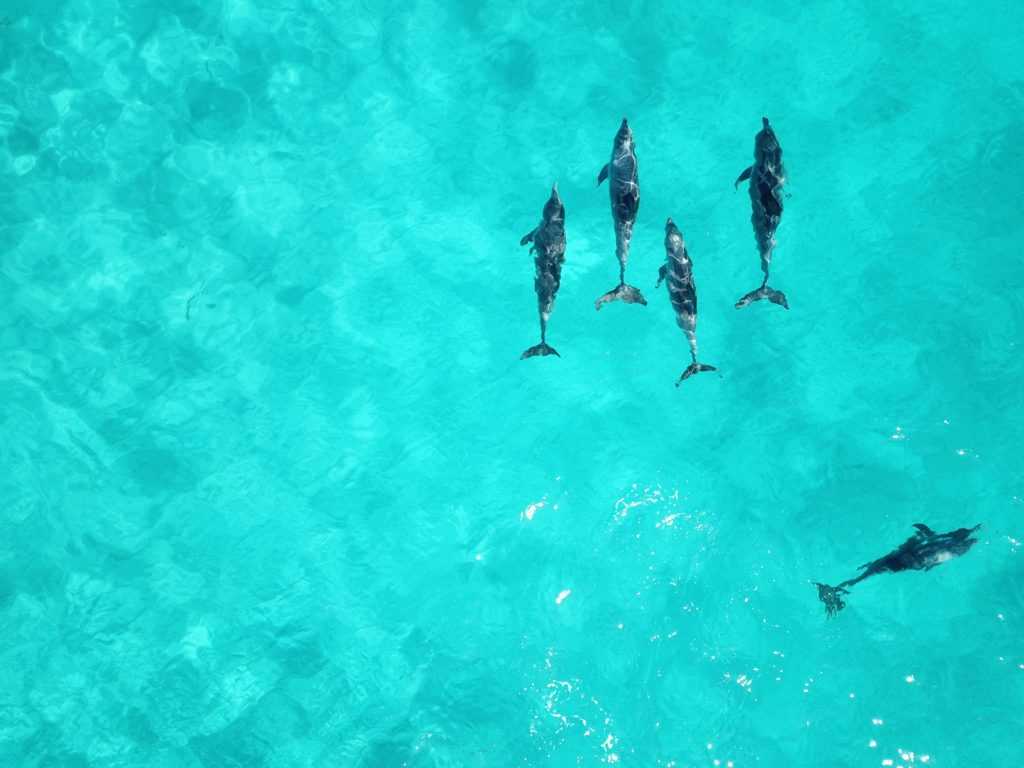
Respecting marine life includes viewing them only in their natural habitats.
13. Support Conservation Efforts
Want to help respect marine life from afar? Support conservation efforts! Many organizations are out there, fighting the good fight, to help conserve our oceans.
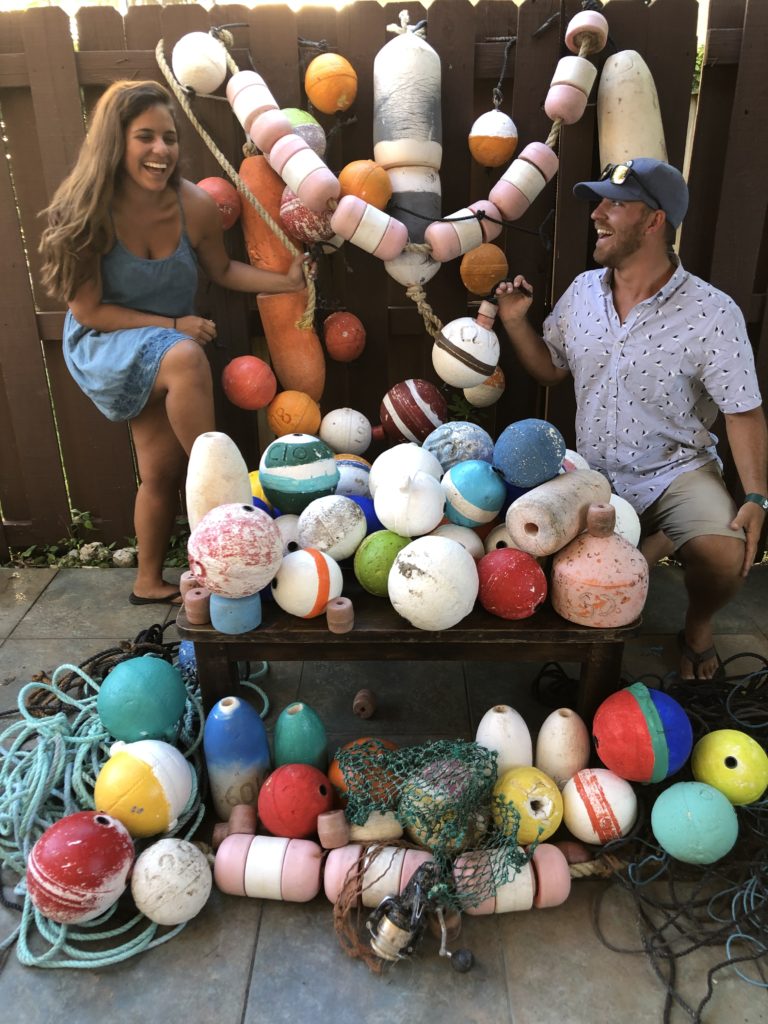
Enjoy this Post? Pin it!
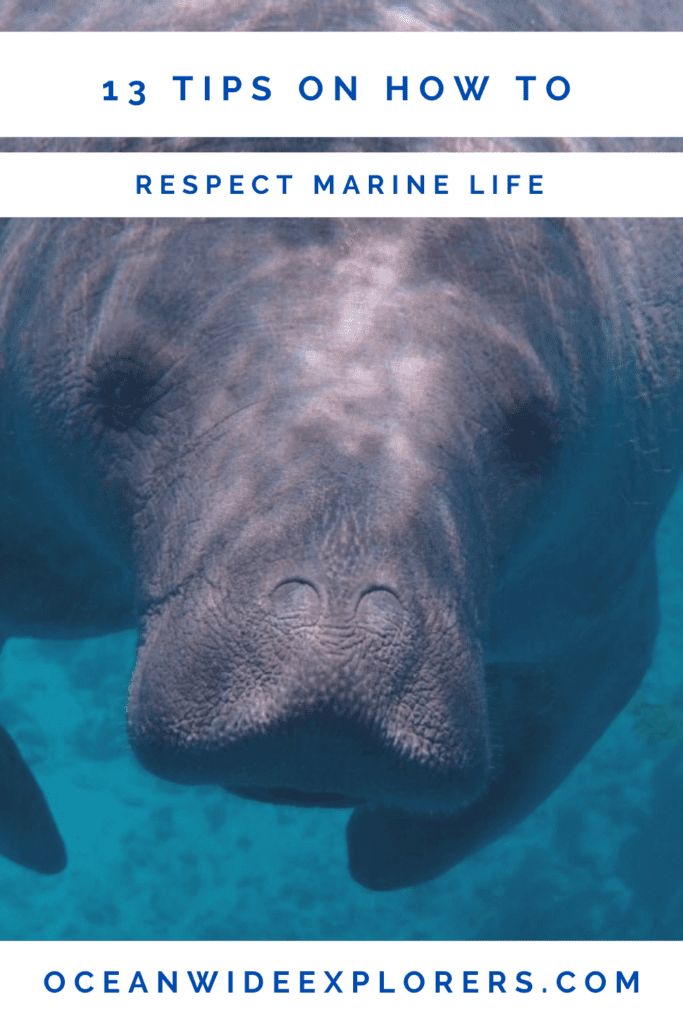
Read More About Ocean Conservation
We hope you enjoyed our post on how to respect marine life. Hopefully you’ll find it useful on your next adventure! Here are a few more ocean-loving articles we think you should read next:
- 14 Ways to Have an Eco Friendly Beach Day
- How to Help Sea Turtles: 16 Dos and Don’ts
- Leave No Trace at the Beach
- 10 Alternatives to Single Use Plastic
How else can we help save marine life? What are some other fun ideas we could add to our list? Leave a comment below with your suggestion!

